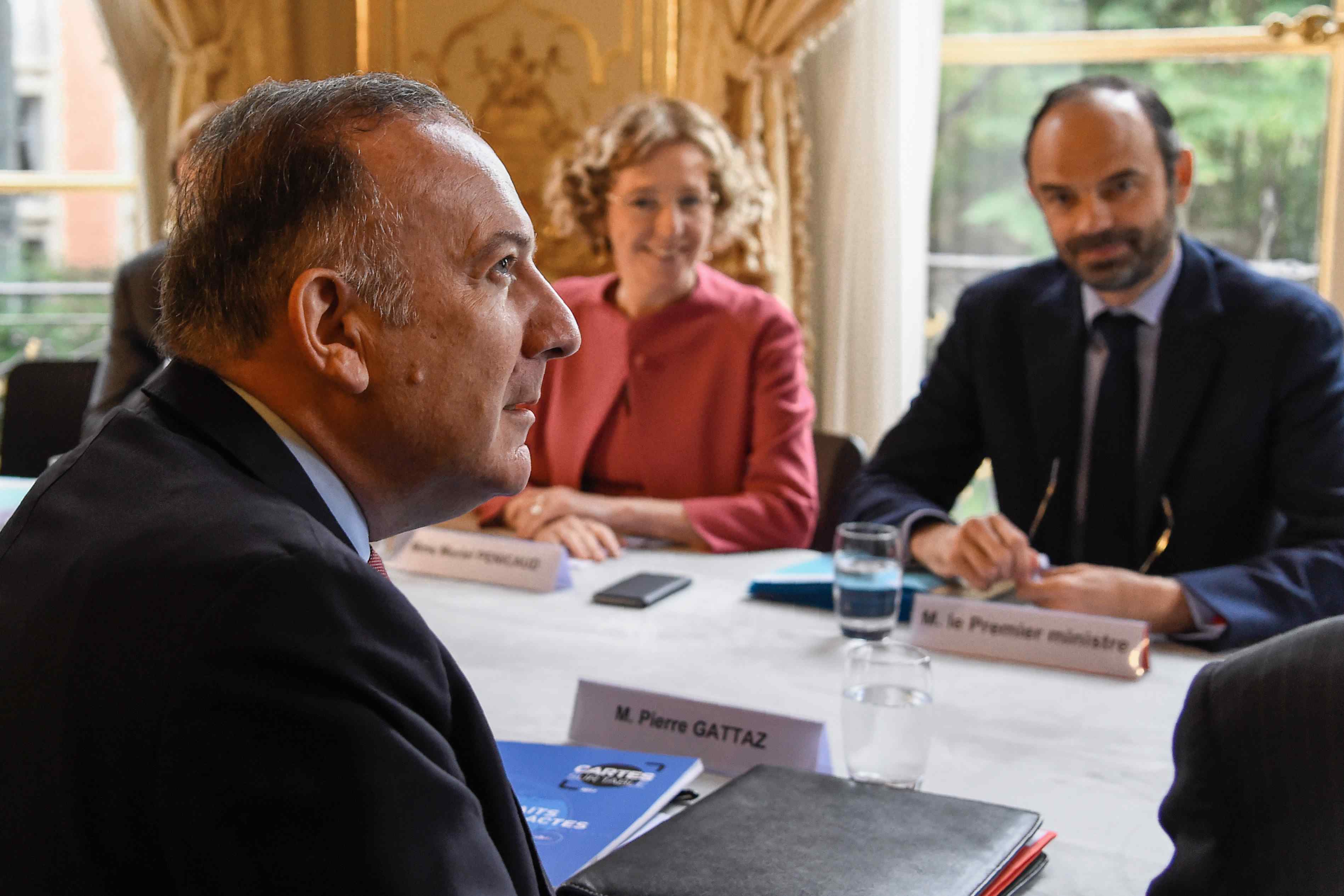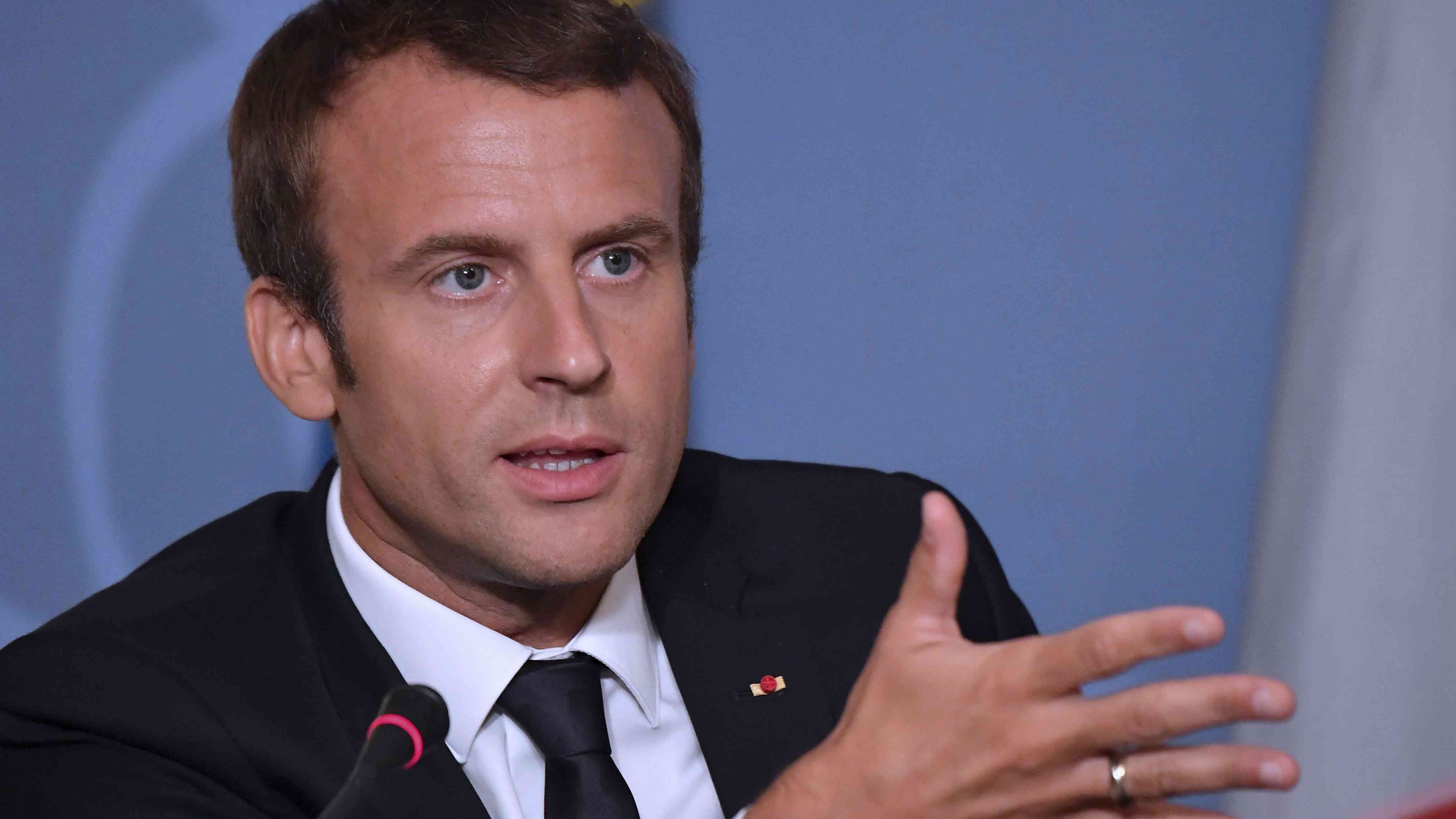The long hot summer in France is coming to an end as politicians return to work. More than 100 days after inauguration, President Emmanuel Macron will outline on Thursday his first set of key reforms to boost French business and the wider economy.
The delivery of the reforms will be the first indicator of whether the 39-year-old president can succeed where previous leaders have failed, by uniting the left and the right and transforming the country’s rigid labor laws.
Why the need for reform?
Growth stagnated under Francois Hollande, but after Macron’s election, GDP growth in the second quarter increased 1.8 percent year-on-year – the best growth rate since 2011.
Consumer spending, imports and business confidence are all up. However, Macron still needs to meet his pledge to reign in the deficit to three percent of GDP by 2018, meaning economic growth needs to increase further.
The unemployment rate stands at 9.5 percent, double that of other European countries like Germany, the UK and the Netherlands. On August 23, Macron told a press conference that “France’s problem is that it has had mass unemployment for 30 years. The reality is that we are the only big European country that hasn’t won the battle against unemployment.”
What is Macron proposing?
The president wants to drastically streamline France’s labor code, which currently runs to more than 3,000 pages. To make French companies more competitive in an increasingly globalized world, Macron wants to give businesses more powers to settle contractual issues, making it easier to hire (and fire) workers. Current laws on areas such as severance pay are seen by business leaders as overly complex and a barrier to employment.

A copy of France's current Labor Code. President Macron promises to tear up and reform the 3,000-page document. /AFP Photo
A copy of France's current Labor Code. President Macron promises to tear up and reform the 3,000-page document. /AFP Photo
The full details of Macron’s proposals will be unveiled to trade unions on Thursday morning, before being made public later in the day by Prime Minister Edouard Philippe.
Will France back Macron?
Macron’s election campaign was built on a centrist pro-business platform, as he promised to unite both sides of France’s political divide under the banner of his En Marche! movement. However, question marks remain over whether it was his policies that won the election, or the simple fact that he wasn’t Front National populist Marine Le Pen.

Head of employer federation Medef Pierre Gattaz (2nd-L) attends a meeting with French Prime Minister Edouard Philippe (1st-R) and French Minister of Labour Muriel Penicaud (2nd-R) at the Hotel de Matignon on July 25, 2017.
Head of employer federation Medef Pierre Gattaz (2nd-L) attends a meeting with French Prime Minister Edouard Philippe (1st-R) and French Minister of Labour Muriel Penicaud (2nd-R) at the Hotel de Matignon on July 25, 2017.
Pierre Gattaz, head of employers’ federation Medef and a key Macron ally, has previously said business reforms could see one million more people employed. After Macron’s election victory in May, Gattaz told CNews that “no matter if one is on the left or right, this chance [to reform labor laws] must be taken.”
Businesses and markets have continued to show support for Macron and the wider Eurozone as a whole, with confidence in Europe at its highest since before the global financial crisis, according to the European Commission.
According to the Financial Times, Macron “has spent weeks wooing France’s powerful unions” in a bid to gauge their concerns over the reforms. While some far-left unions have promised to strike – including a group led by Jean-Luc Melenchon, a candidate who received 19.58 percent of votes in the first round of this year’s presidential polls – larger unions have promised to consider Macron’s proposals before announcing their stances.
Why Macron can succeed where others failed
Since Jacques Chirac in the 1990s, various administrations have failed to reform France’s labor laws. Macron portrays himself as representing a new order rather than the old establishment, and this is the calling card that he hopes will see him succeed where Chirac, Sarkozy and Hollande all failed.
Macron has already received the go-ahead from lawmakers to pass through his reforms by decree. However, the real test will be how workers react – mass protests would force Macron to back down, dealing a heavy blow to his credibility and any real chance of further reform.

La France Insoumise leader Jean-Luc Melenchon gives a speech on the last day of the party's summer conference in Marseille, southern France, on August 27, 2017. Melenchon has called on supporters to strike against Macron's proposed labor reforms. /AFP Photo
La France Insoumise leader Jean-Luc Melenchon gives a speech on the last day of the party's summer conference in Marseille, southern France, on August 27, 2017. Melenchon has called on supporters to strike against Macron's proposed labor reforms. /AFP Photo
Aware of the task that lies at hand, Macron complained earlier in August that “French men and women hate reform.” His popularity rating has fallen rapidly to 40 percent since his election, and a poll by Odoxa suggested on Monday that 63 percent of French workers do not trust Macron over the reforms.
If Macron does succeed, these reforms could just be the beginning of a huge transformation for the French economy. Prime Minister Philippe has suggested 2018 could see tax breaks for the wealthy, while Macron will look to forge ahead with pension reforms and work with Germany to enact changes to the wider European system.
In an interview with Le Point published on Thursday, Macron described one of his biggest goals – “I want a Europe which is a continent and a power on the same scale as the US and China.” But first and foremost, Macron needs to get the French people fully on his side.





